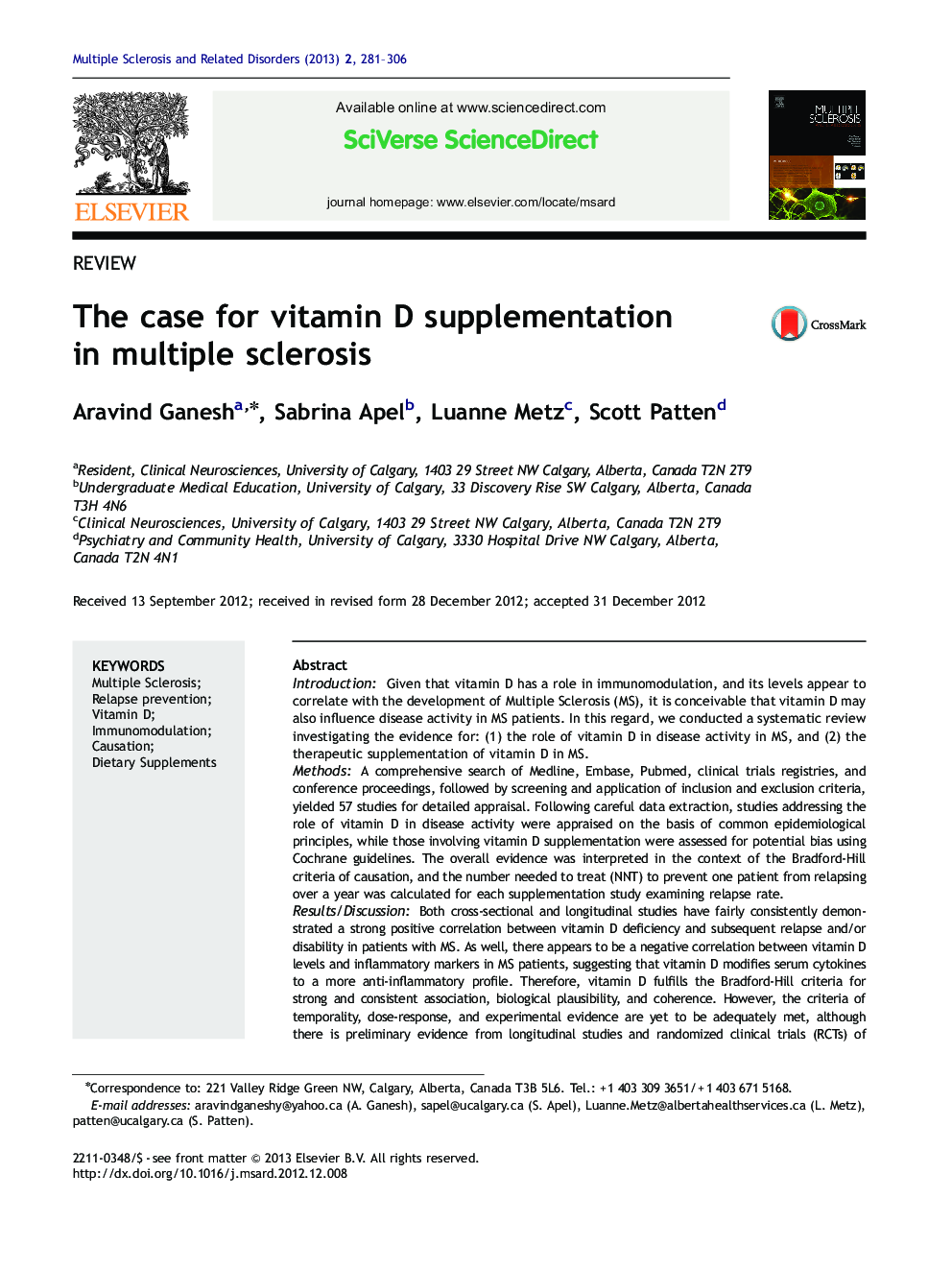| کد مقاله | کد نشریه | سال انتشار | مقاله انگلیسی | نسخه تمام متن |
|---|---|---|---|---|
| 5912729 | 1161447 | 2013 | 26 صفحه PDF | دانلود رایگان |

IntroductionGiven that vitamin D has a role in immunomodulation, and its levels appear to correlate with the development of Multiple Sclerosis (MS), it is conceivable that vitamin D may also influence disease activity in MS patients. In this regard, we conducted a systematic review investigating the evidence for: (1) the role of vitamin D in disease activity in MS, and (2) the therapeutic supplementation of vitamin D in MS.MethodsA comprehensive search of Medline, Embase, Pubmed, clinical trials registries, and conference proceedings, followed by screening and application of inclusion and exclusion criteria, yielded 57 studies for detailed appraisal. Following careful data extraction, studies addressing the role of vitamin D in disease activity were appraised on the basis of common epidemiological principles, while those involving vitamin D supplementation were assessed for potential bias using Cochrane guidelines. The overall evidence was interpreted in the context of the Bradford-Hill criteria of causation, and the number needed to treat (NNT) to prevent one patient from relapsing over a year was calculated for each supplementation study examining relapse rate.Results/DiscussionBoth cross-sectional and longitudinal studies have fairly consistently demonstrated a strong positive correlation between vitamin D deficiency and subsequent relapse and/or disability in patients with MS. As well, there appears to be a negative correlation between vitamin D levels and inflammatory markers in MS patients, suggesting that vitamin D modifies serum cytokines to a more anti-inflammatory profile. Therefore, vitamin D fulfills the Bradford-Hill criteria for strong and consistent association, biological plausibility, and coherence. However, the criteria of temporality, dose-response, and experimental evidence are yet to be adequately met, although there is preliminary evidence from longitudinal studies and randomized clinical trials (RCTs) of supplementation that vitamin D can attenuate the autoimmune response in patients, and potentially reduce relapse rates and burden of disease. Currently published data on relapse prevention with vitamin D indicates the possibility of small NNTs in the range of 1.36-25.00, but they arise from very heterogeneously designed studies.ConclusionsUltimately, the current evidence does not permit inference of a causal relationship between vitamin D deficiency and disease activity in MS. Vitamin D supplementation appears to be a promising treatment worthy of further exploration, but owing to the paucity of RCTs with placebo or comparator arms, the evidence is not definitive and appropriate dosing remains uncertain.
⺠Vitamin D meets Hill criteria of correlation, plausibility for altering MS activity. ⺠The temporality, dose-response, and reversibility criteria are yet to be fully met. ⺠Supplementation seems well-tolerated; long-term safety and optimum dose are unclear. ⺠Supplementation may reduce inflammation, relapse risk, and/or disability in MS. ⺠More prospective cohorts and double-blind RCTs with placebo/comparator arms needed.
Journal: Multiple Sclerosis and Related Disorders - Volume 2, Issue 4, October 2013, Pages 281-306